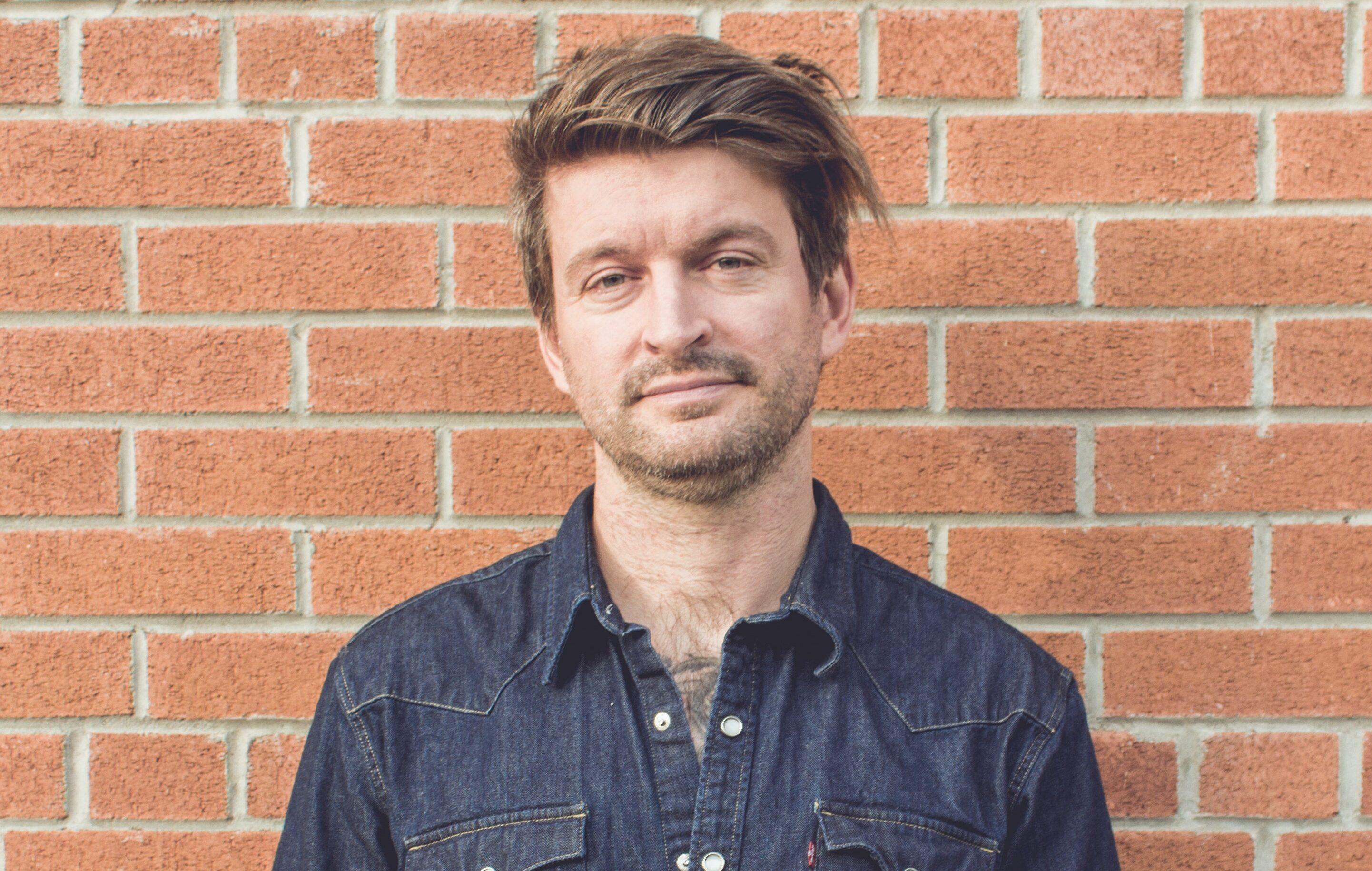Roger White got his start in Montreal’s underground music scene, and he bears the tattoos from bands like Dead Messenger and Rhythm Mercenaries to prove it.
White is 42 now and his artistic expression has matured, along with a deeper understanding of his obscured Jewish heritage. He was almost 20 when he became aware that his maternal grandmother was a survivor of the Holocaust—a subject little talked about in the family.
White, who in recent years has composed music for contemporary dance, has woven these personal strands into his first full-length show, Because You Never Asked, which will premiere at MAI (Montréal, arts interculturels) April 19-22.
This interdisciplinary production is based on extensive interviews White conducted with his grandmother, Marianna Clark (née Goldmann), who fled with her family from her home near Hamburg, Germany to Britain in 1939.
Clark, who remained in Britain until her death in 2020, left hundreds of letters, diaries, photos, and other documentation related to her experience before and during the war while she was in her late teens and early 20s.
The relatively privileged family was gradually stripped of their rights after the Nazi regime’s Nuremberg laws were passed in 1935.
Clark’s father was Jewish, her mother Christian, a marriage the Nazis deemed illegal. In time, the family’s citizenship was revoked, forcing them to find refuge abroad, which was difficult.
The MAI audience can expect unconventional theatre that incorporates factual narrative, including actual recordings of Clark’s discussions with her grandson, to enhance the storytelling.
This dialogue will unfold over original music and dance during the 70-minute running time that is intended to evoke a dream-like state.
With co-creator and wife, choreographer Helen Simard, White aims to “create an immersive sonic landscape that invites spectators to sink into altered levels of consciousness.”

Seating will be on both sides of the stage. White is making deliberate use of the four pillars in the space in order for certain audience members’ view to be obstructed at precise moments to give a sense of the process that went into reconstructing what happened to his family.
“I want to obscure the audience’s viewpoint so that people are not able to see everything and so that the viewing experience is different depending on where you are seated,” White explained.
“When you start looking into your family’s history, you’re never going to see everything. I spent 10 years trying to learn everything and what I did learn is that it is impossible. Two people could read the same letter, and come away with completely different meanings from it, different interpretations. So as a spectator, no matter where you sit in the room, you’ll see the show differently than your fellow spectator.”
He hopes the avant-garde format will appeal to people, especially younger ones, who otherwise would not seek out Holocaust-themed art, while resonating with those familiar with the subject.
A group of Concordia students were invited to a rehearsal. “It was great to see how they reacted,” said White. “Some were hearing about (the Holocaust) for the first time.”
A talkback with the artists will be held after the April 20 performance.
White is especially proud that his mother, Lydia White, now the James McGill Professor emeritus in linguistics at McGill University, and her sister Harriet Hall, who is coming from the U.K., will be in the audience.
White did not grow up identifying as Jewish, but knew of a “thread of Jewishness” through his mother’s side. He was “vaguely aware” that his grandmother in England had escaped Nazi Germany, yet it was not until he was nearly 20 that he became interested in finding out more.
That was after his mother went to Krakow, Poland to give a lecture. She used the opportunity to see where certain family members had lived, and told her son that some of them had perished in the Holocaust.
In 2012, White began his conversations with his grandmother, whose memory was acute despite her 90 years. He was astonished that she had kept an amazing archival collection that backed up the names and dates she cited.
Her parents and sister went to Britain, while two brothers wound up in Switzerland and the United States. All of their correspondence was preserved.
This newfound knowledge did not jell into a piece of theatre until the self-taught White was granted an artistic residence at the Segal Centre for Performing Arts in 2019-2020 under its Jewish arts mentorship program.
“My time at the Segal kicked me in the pants to put together an idea I was sitting with for years,” he said.
While these intergenerational talks were vivid and precise, White felt words alone would not convey the “subtlety and nuance of memory.” The original sound and body movement in Because You Never Asked aims to fill that gap, and harmonizes the past and present.
The cast members are David Albert-Toth, Marie Lévéque, Brianna Lombardo and Maxine Segalowitz.
During the run of Because You Never Asked some of Clark’s memorabilia will be on display, including documentation tracing the family’s flight, as well as mementos such as the doll she managed to take with her.
Of particular historical interest is Clark’s correspondence with her best childhood friend Hans Liepelt who, like her, was half-Jewish. As a university student he joined the anti-Nazi resistance in Munich, known as the White Rose movement. He was arrested in late 1943 and executed by guillotine in January 1945.
White said the items related to Liepelt have never been shown publicly before.
A filmed version of Because You Never Asked is to be webcast from June 12-16, and White hopes the live production will tour after it closes at MAI.
